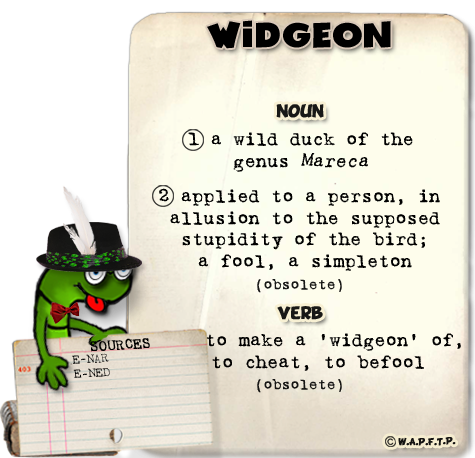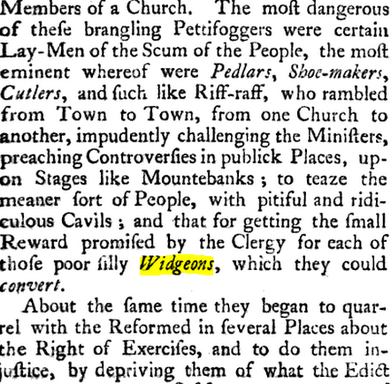|
CLICK HERE FOR KEY TO SOURCES
ETYMOLOGY From E-NED: Of difficult etymology. The form suggests a French origin (cf. pigeon), but no appropriate French forms are evidenced as early as the English word or with the required meaning; cf.vigeon a West Indian duck (1667 Du Tertre, Hist. Gén. des Antilles II. 277), of which there is a nasalized form vingeon (1) widgeon in Eastern dial., (2) a duck of Madagascar (1771 Dict. de Trévoux); beside which there are gingeon ‘sorte de canard qu'on trouve dans les grandes Antilles’ (1832 Raymond Dict. Gén.), and Angevin dial. digeon widgeon. French vigeon and Italian bibbio wild duck have been referred to Latin vīpio kind of crane, but this derivation is very dubious. The various extant forms suggest the possibility of a series of formations with suffix -io(nem) on parallel onomatopœic bases, piu-, biu-, viu-, diu-, giu- (cf. whew, whewer). EXAMPLE From: A Compendious History of the Reformation. And of the Reformed Churches in France By the Reverend Stephen Abel Laval, Vol. IV. Book VIII. 1741 P. 985
0 Comments
Leave a Reply. |
Archives
September 2021
|

